Image

A MinneapoliMedia Spotlight on Women Building Legacy, Leadership, and Liberation in Minnesota
Interview conducted by Tom Akaolisa | MinneapoliMedia
There are few artists who embody the living heartbeat of their community quite like PaviElle French — a powerhouse vocalist, composer, and cultural truth-teller from Saint Paul’s historic Rondo neighborhood. Through a body of work that fuses soul, classical, and ancestral sound, PaviElle honors her community’s legacy while boldly reshaping the landscape of American music.
Her performances are not merely concerts; they are ceremonies of remembrance and rebirth — spaces where memory, movement, and spirit converge. From her award-winning symphonic works Requiem for Zula and A Sovereign Suite to her transformative album Sovereign and the youth-centered residency Liberation! Lifting Up Our Youth, PaviElle continues to reimagine what it means for music to serve as both testimony and healing.
Music moves through Minnesota like a river — carrying resilience, ancestry, and the sounds of community. At its confluence stands PaviElle French, an Emmy Award–winning singer, composer, storyteller, and keeper of Rondo’s living legacy. Her voice — rooted in soul, jazz, and Black classical tradition — has become one of the Twin Cities’ most powerful conduits for remembrance and liberation.
Recently, MinneapoliMedia’s Tom Akaolisa sat down with PaviElle for an intimate conversation as part of our “Rhythms of Rondo: Conversations in Community” series within The Power of Her — spotlighting women building legacy, leadership, and liberation across Minnesota. Together, we explored art, ancestry, and the enduring power of sound to shape collective memory and to imagine a freer, more connected future.
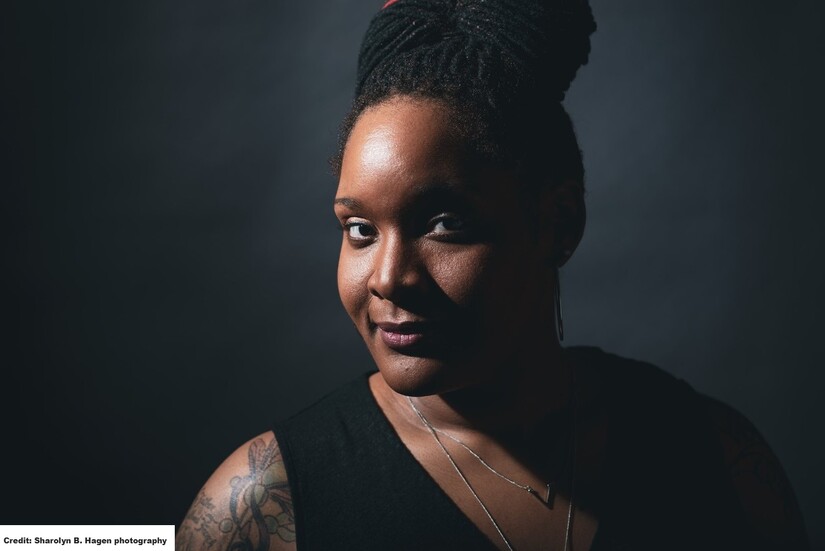
Tom Akaolisa: First off — congratulations on your second Emmy! That’s huge.
PaviElle French: Thank you! I’m really excited. We just won for Music Making History at the Minnesota History Center. It’s wild. Every time it happens, I think of my community first — because that’s who I do it for.
Tom Akaolisa: You’re recognized as one of Minnesota’s most resonant voices — not only as a singer and composer, but as a storyteller, teacher, and vessel for healing. You carry Rondo’s memory through your work. How did growing up in that community shape the stories you tell today?
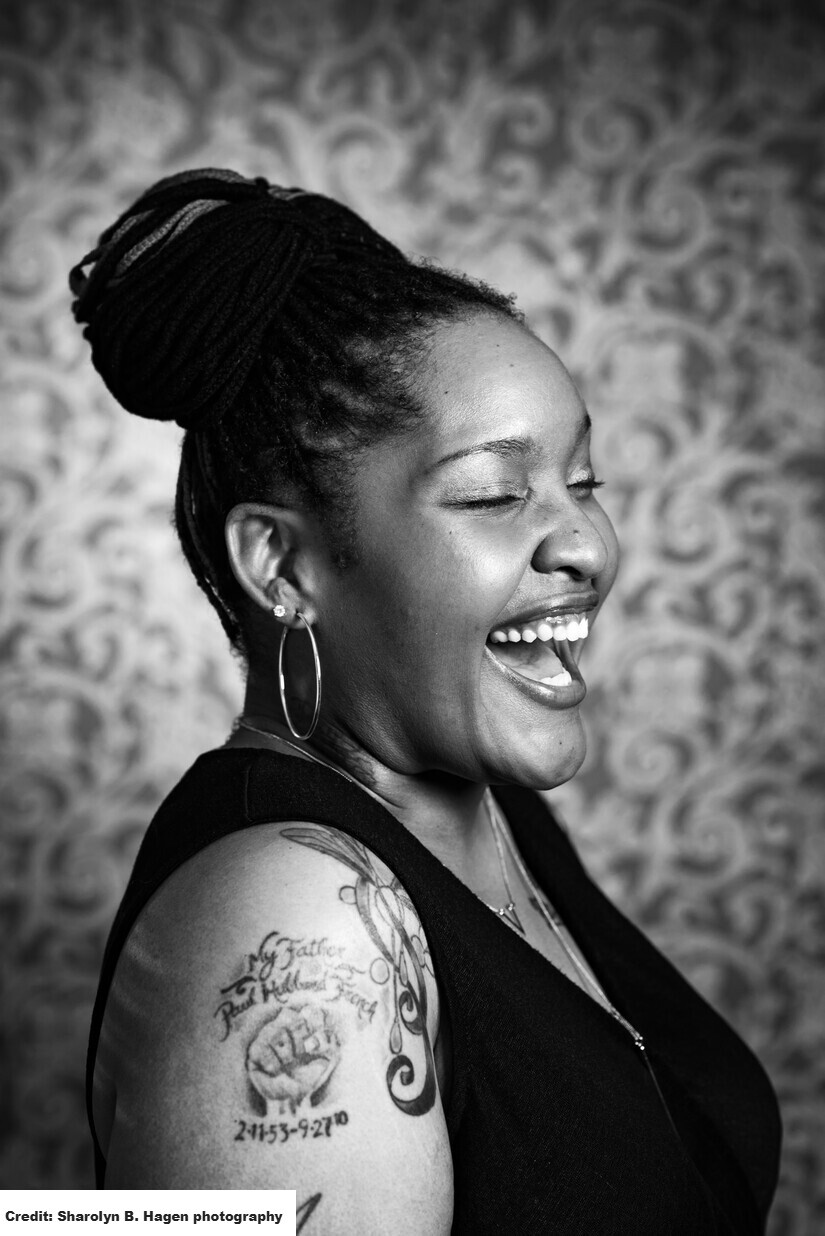
PaviElle French: Growing up in Rondo was like growing up inside a song. I always say I had an enchanted childhood — not because life was easy, but because artistry surrounded me. My mom played saxophone. My uncle, George Young, played with the group called Haze alongside Sunny Knight. I played with Sunny Knight and The Lakers — that whole pre-Prince St. Paul sound. On the theater side, my cousin Greg Allen Williams was a foundational company member at penumbra. My brother followed that path, and then I did too.
I saw black folks collaborating all around me. I fought theory, honestly because I have my own sound.
So, when I create, I’m looking back — like Sankofa — to understand the blueprint they left us. Rondo taught me that we can’t survive without one another. We need to resource each other again, the way my parents’ generation did. That’s what I try to honor through my work — to remember that time of togetherness and bring it forward into the future.
Tom Akaolisa: Your project A Sovereign Suite emerged during the pandemic and the uprisings after George Floyd’s murder. What did “sovereignty” mean to you when you wrote it — and how has that meaning evolved?
PaviElle French: Sovereignty, for me, means living life on your own terms — without having to acclimate to systems that were never made for you. It’s about being fully yourself, respectfully, in community.
When I wrote Sovereign Suite, the world was hurting. We were isolated, angry, grieving. Writing it was my way of processing that collective pain and imagining freedom beyond it. Since then, the piece keeps teaching me. It’s like it has its own life — still revealing new things.
Now I see Sovereign as part of a larger canon — kind of my own cycle, like August Wilson’s. The Sovereign Series will span ten years: different works exploring love, liberation, politics, and community. The latest, Sovereign Aligned, is about self-love and honesty. It’s me evolving through the work — and letting the work evolve me.
Tom Akaolisa: You bridge classical composition and Black musical traditions in pieces like Requiem for Zula and A Sense of Time. How do you navigate bringing Black expression into spaces that historically excluded it — and what power do you find in doing that?
PaviElle French: I love this question. One day I just said, “I want to work with an orchestra.” I could hear these symphonic sounds in my head. I didn’t have formal training in composition beyond school — I fought theory, honestly — but I had sound.
So, I reached out. The Saint Paul Chamber Orchestra connected me with the amazing violinist and composer Michi Wiancko, who later became my transcriber and my friend. I'd record the full piece on GarageBand — sixteen instruments, all played on keyboard — then Michi would translate it into notation musicians could read.
That’s how Requiem for Zula was born. It was freedom — merging R&B, gospel, jazz, hip-hop, orchestral textures, African polyrhythms — everything that lives inside me. I grew up listening to Barry White, MFSB, Love Unlimited Orchestra, James Brown. So, strings and horns feel natural to me; they open the soul of the song.
It’s power, honestly — to take our sound into those classical halls and say, “This belongs here too.”
Tom Akaolisa: You’ve been deeply involved with the Minnesota History Center’s Music Making History series, which just won that Emmy. Tell us about that work and your upcoming documentary.
PaviElle French: Music Making History is beautiful because it documents the musical legacies of Minnesota’s communities — especially our Black artists. We’ve done episodes on Queen Bernadette Anderson (André Simone’s mother), whose legacy was about the YMCA that she ran on the north side.
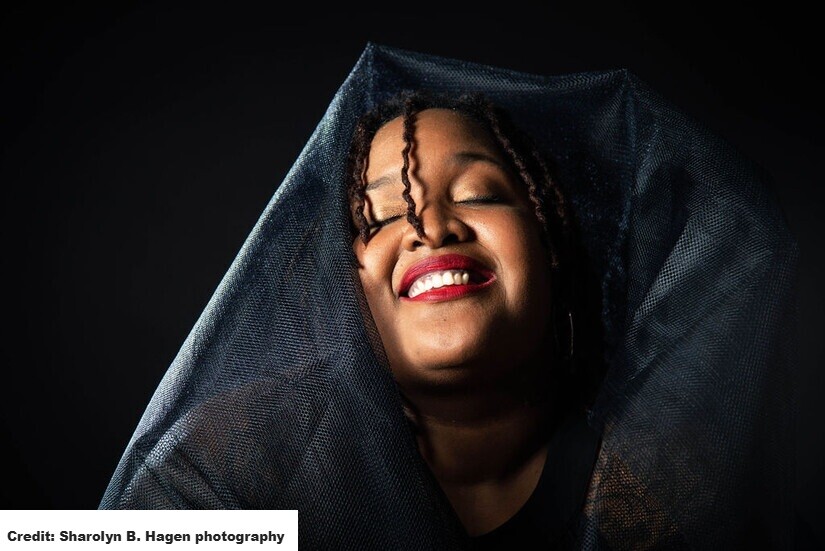
The Victoria Theater one meant a lot — it’s right at the end of the block where I grew up. I’d looked at that building my whole life and never knew its story until I got to host that documentary.
And next, we’re filming my own story — my life as a child performer in St. Paul, working with SteppingStone, Penumbra, all those places that raised me. I want to honor that generation who created pathways for us — and now, as I turn 40, to look back and look forward, stepping into my own eldership.
Tom Akaolisa: Your mother’s spirit seems to live in much of your work, especially Requiem for Zula. What lessons or memories of her guide your creative and spiritual journey?
PaviElle French: My mom — and my dad — were community builders, visionaries. They were activists before I even knew that word. They showed me the power of community and the people, and that together you can get major things done.
My mom literally looked out her window one day at an empty lot and said, “That should be a garden.” So, she got together with neighbors and started the Selby Area Gardening Enthusiasts (SAGE). That was her — an alchemist, manifesting what she saw in her mind.
She also bought our family home through a community land trust. I remember watching her eyes light up the moment she decided: I’m going to buy a house. From that spark to closing on the house — I saw it all. That was my first lesson in manifestation.
Even though she and my dad have both passed when I was 25 — they’re still my teachers. Everything I do is a conversation with them, a continuation of their love and purpose.
Tom Akaolisa: When you’re composing, especially pieces that blend orchestration, spoken word, and soul, what does your creative process look like?
PaviElle French: Usually, the music leads. I start by freestyling on piano — finding a bassline, a rhythm. Then I build layer by layer: drums, keys, horns.
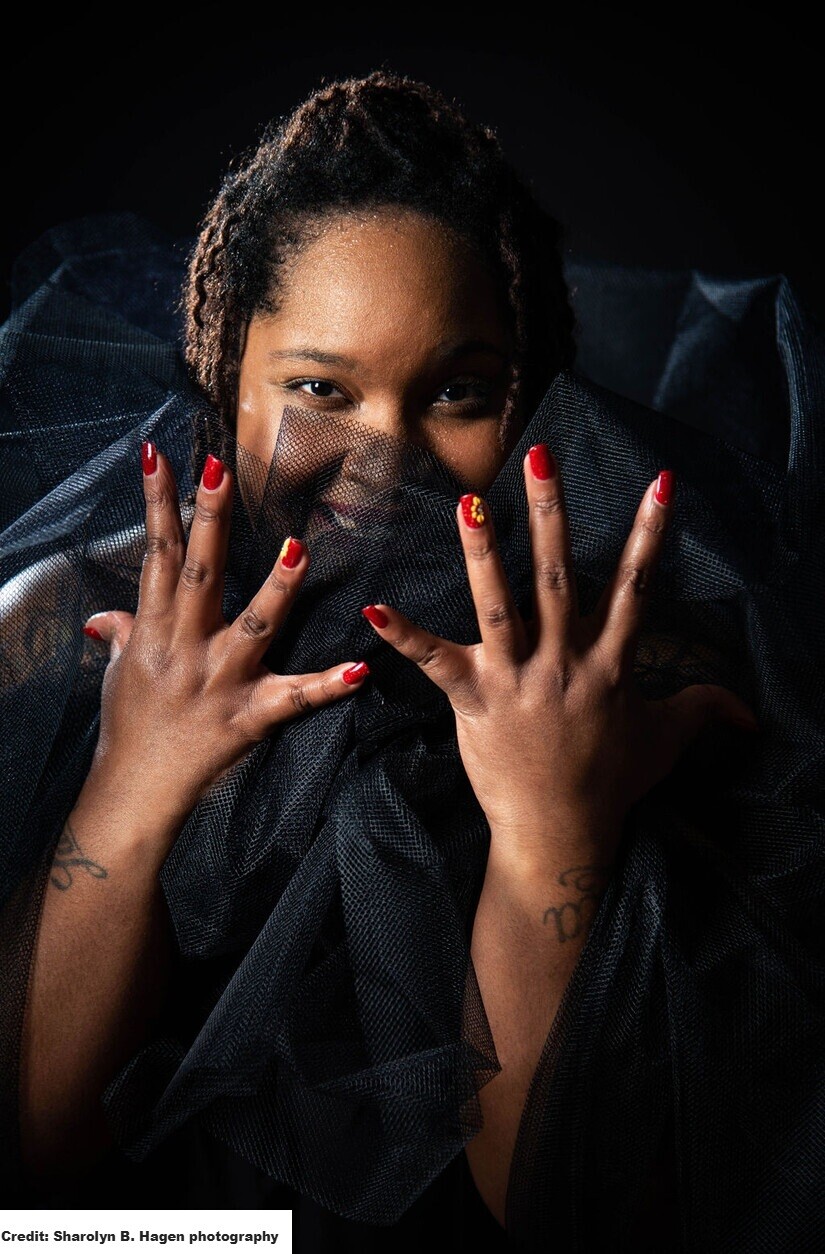
Once the sound starts taking shape, words appear. Sometimes it’s not even words at first — it’s melody, cadence, breath. My voice becomes another rhythm in the mix, a polyrhythm.
I’ve always been obsessed with harmony. As a kid, I’d spend hours with a karaoke machine that had two tape decks — I’d record one part, flip the tape, add harmonies above and below — six or seven voices layered on top of each other. That’s the Prince influence, the D’Angelo influence — stacking voices to build a whole universe of sound.
Tom Akaolisa: Your Liberation: Lifting Up Our Youth residency brought together multiple arts organizations and young artists. Why is mentoring the next generation so central to your work — and what have those young people taught you?
PaviElle French: That residency was one of the biggest things I’ve ever done — and one of the most rewarding. I was trusted by six organizations to lead something that invested in community, not just me as the artist.
We paid everyone fairly. We worked in union houses. We provided petty cash, seed money, and documentation so young people could use that to apply for grants. It was about setting a precedent: if institutions invest in me, that money must also uplift the community.
And those young folks — they remind me to stay real. They see through everything. You can’t perform authenticity for them; you have to be it. They keep me humble and honest.
Tom Akaolisa: There’s a spiritual energy in your performances — almost ceremonial. What happens internally when you step on stage? Is it performance, prayer, or both?
PaviElle French: Both. Before I perform, I call on the ancestors. I play my parents’ favorite songs backstage, talk to them, ask for guidance.
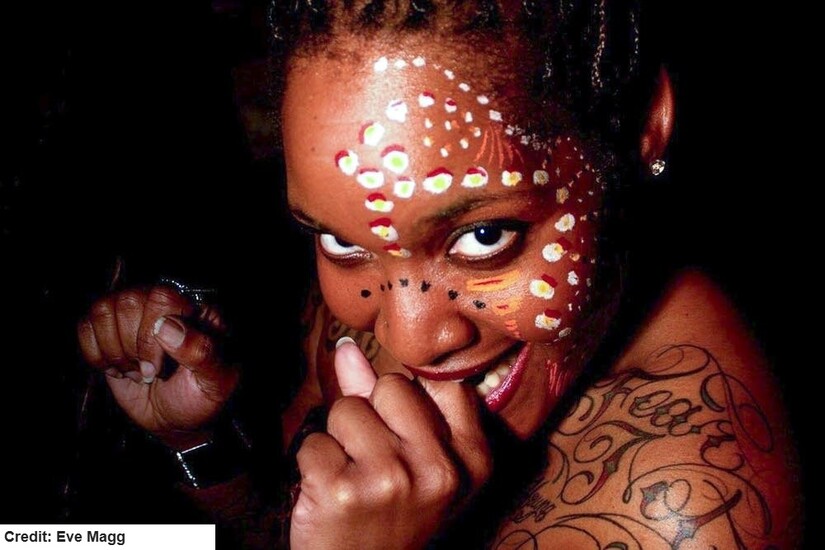
When I step on stage, that becomes ritual. The vibration of the music — it’s like something washes over me. The songs are literally born from my cells, my memories. When they’re played live, it’s like hearing my own heartbeat amplified through the room.
I enter a flow state — time disappears. My performances are a series of awakenings, me coming back to consciousness over and over while something larger moves through me. That’s how I connect with spirit — through rhythm, through art, through love.
Tom Akaolisa: You’ve described your art as both resistance and healing. How do you balance creating from pain while still protecting your own peace and joy?
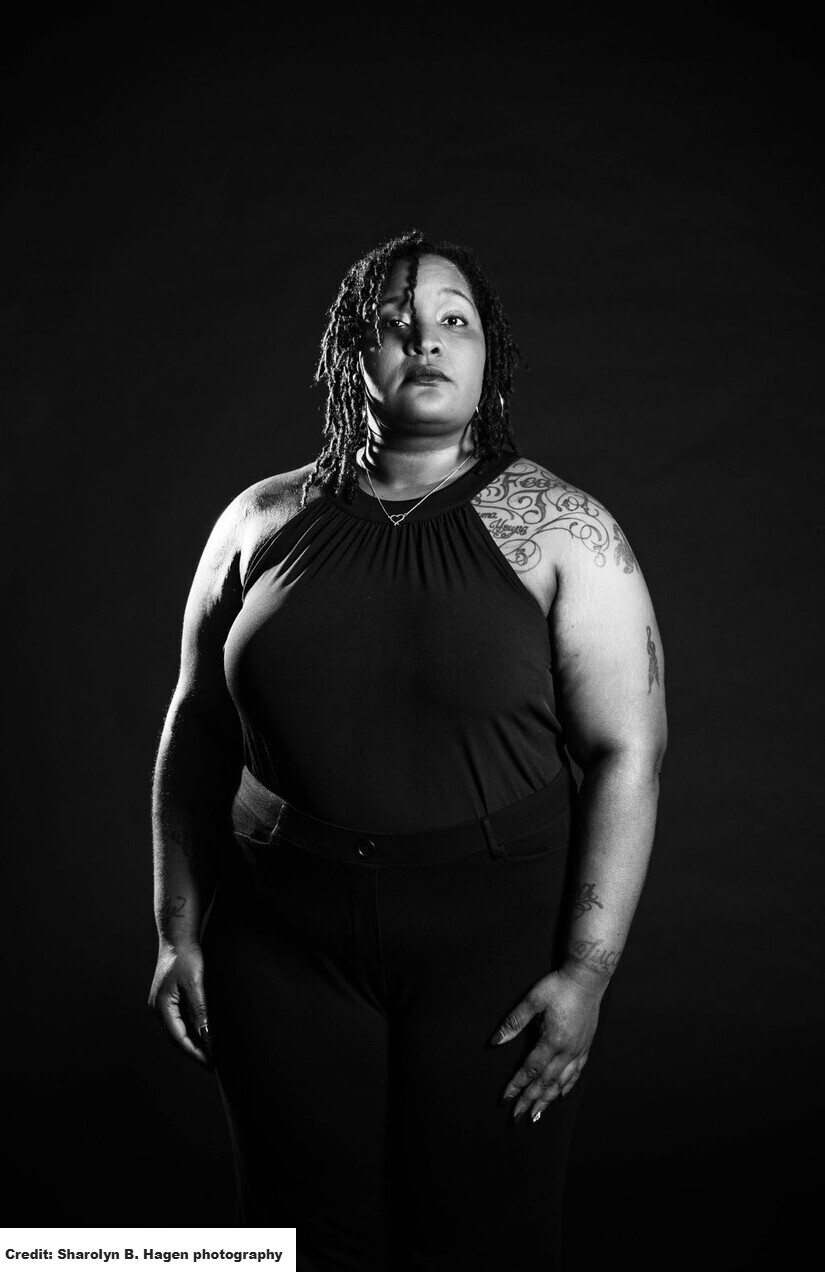
PaviElle French: By writing about joy intentionally. After Sovereign Suite, I knew I needed to rest, so I wrote Sovereign Aligned — about love, self-care, vulnerability.
Sometimes the work is heavy. I’ve carried grief — losing my parents, watching what happened in 2020 — and poured that into music. But then I also know when to step back, breathe, and create from light.
That’s what healing looks like for me now: balance. Knowing I’ve already earned the right to rest, to love, to just be.
Tom Akaolisa: You created Sovereign Aligned during your McDowell residency — six weeks of solitude on the historic artist colony. What did that experience open for you?
PaviElle French: McDowell was life-changing. They gave me a whole house — the NEF House at the Edward R. MacDowell Residency I did from December 2024-January 2025, I didn’t talk to anyone. They’d drop food at my door; I’d wave and go back inside. It was just me, my thoughts, and God.
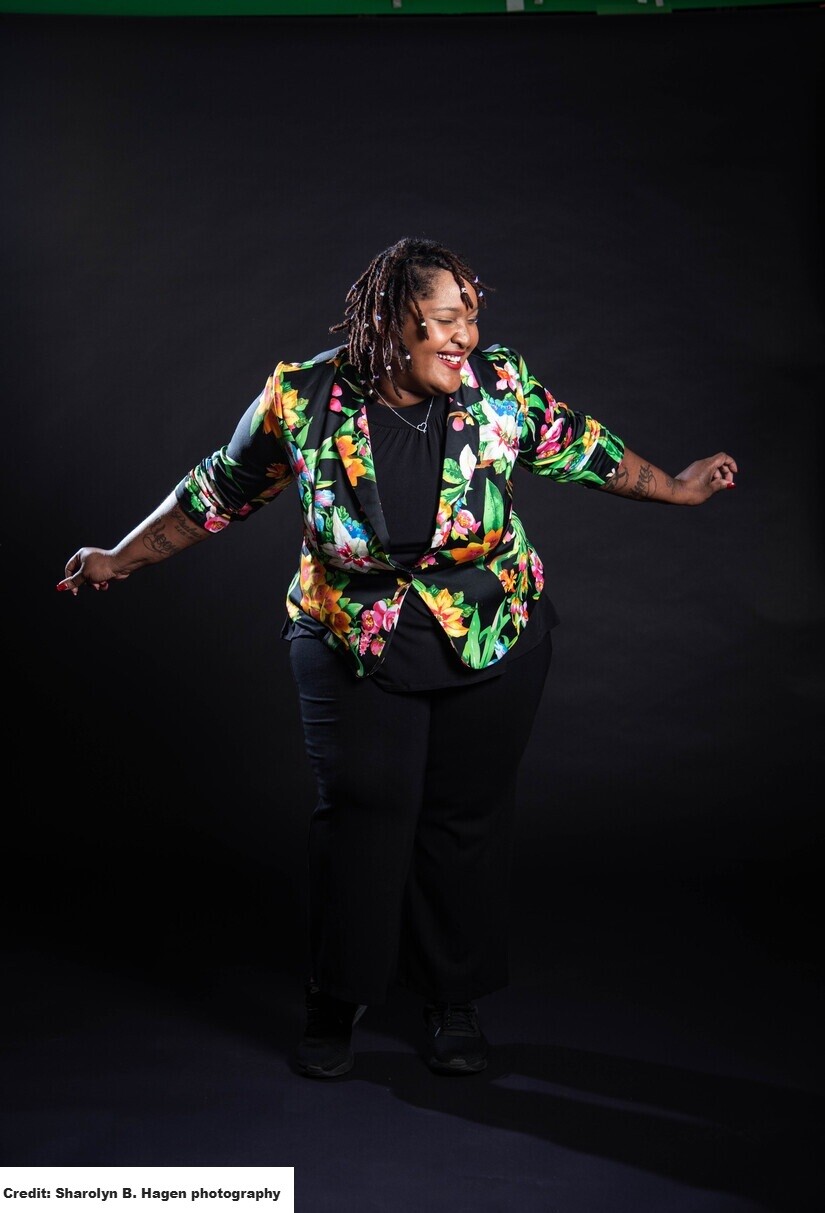
I read Nikki Giovanni, listened to gospel, did yoga, cried, prayed. When Nikki passed while I was there, it broke me open. I spent the night crying on a yoga mat, listening to her voice. The next morning, I started writing Sovereign Aligned.
That project became a mirror. For the first time, I saw myself clearly — not just as an artist, but as a woman I actually liked. I wrote about fear, love, worthiness, imposter syndrome. I had to ask myself real questions and answer them honestly, out loud. That’s where the songs came from — from that raw self-dialogue.
Tom Akaolisa: When future generations look back on your body of work, what do you hope they understand about you — as an artist, a person, and a member of your community?
PaviElle French: That I was human — flaws and all — but always honest.
I want them to see that I loved my people, that I invested in community, and that I taught as much as I learned. My family — my mother, grandmother, brother — were all educators. That’s our lineage: artist-educators, activists, builders.
I hope future generations feel my heart through the music, feel Rondo’s rhythm in it, and know that I carried their legacy forward with love.
In conversation, PaviElle French embodies what she sings — sovereignty, community, and creative freedom grounded in ancestral love. Her art carries Rondo’s pulse into new generations, fusing memory with motion.
In her words: “We can get back to each other. We can heal. We can rebuild.”
And through her work — she’s already showing us how.
Beyond her artistry, PaviElle is calling on partners and sponsors to stand beside her — supporting the initiatives and programs that amplify community voices and create lasting cultural impact. For those ready to invest in transformation through the arts, her work offers a living stage where passion meets purpose.